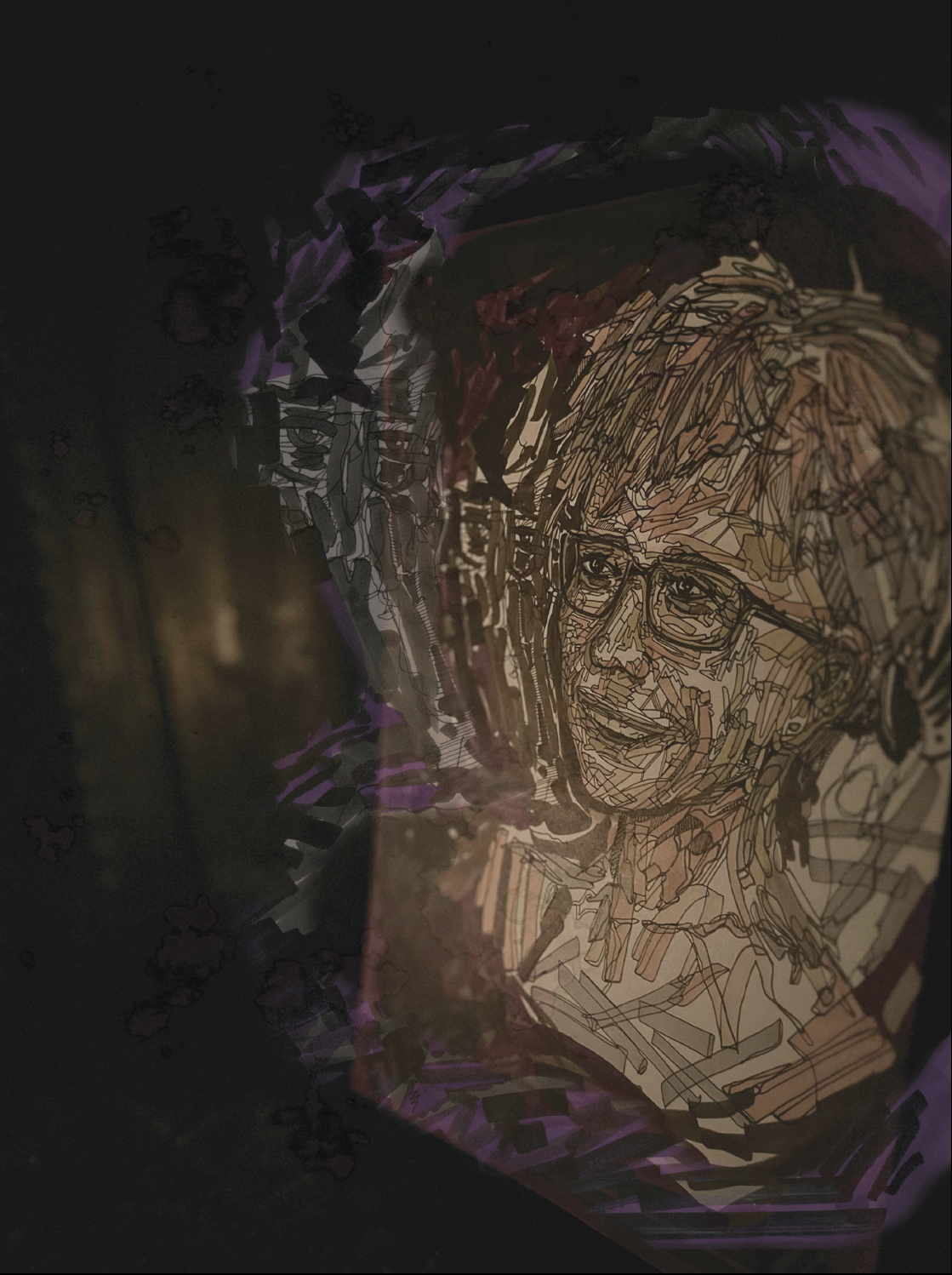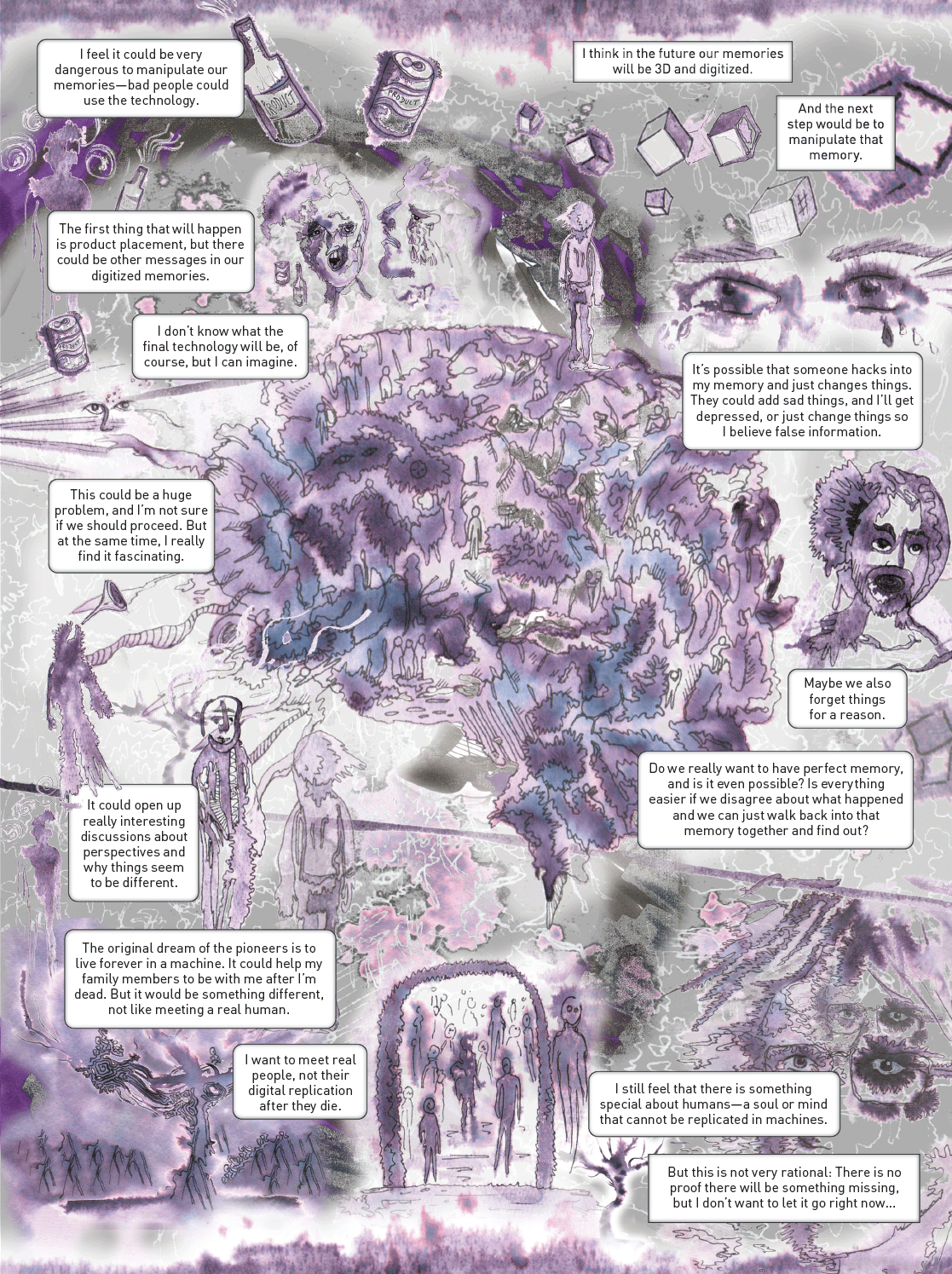Authors:
Miriam Sturdee
"I'm interested in memory augmentation and manipulation. Who is going to use future memory technologies and what will the impact and downside be?"
Text version
Eva Wolfangel is a journalist, author, speaker, and moderator who has worked for ZEIT, Deutschlandfunk, and Technology Review, among others. She combines complex topics with creative storytelling to reach a broad audience. Here, she discusses the future of memory capture and manipulation.
Eva was hard to pin down, but she’s always happy to make time to talk about one of her current favorite subjects—memory. She is in the middle of a rehearsal for a play considering the same topic and says she may be called away any minute for her part, so we start chatting straight away.
I'm interested in memory augmentation and manipulation. Who is going to use future memory technologies and what will the impact and downside be? I feel it could be very dangerous to manipulate our memories—bad people could use the technology.
I think in the future our memories will be 3D and digitized, and the next step would be to manipulate that memory. The first thing that will happen is product placement, but there could be other messages in our digitized memories.
Eva pivots to audio only as her reception becomes spotty.
I don’t know what the final technology will be, of course, but I can imagine.
It’s possible that someone hacks into my memory and just changes things. They could add sad things, and I’ll get depressed, or just change things so I believe false information.
This could be a huge problem, and I’m not sure if we should proceed. But at the same time, I really find it fascinating.
Maybe we also forget things for a reason.
Do we really want to have perfect memory, and is it even possible? Is everything easier if we disagree about what happened and we can just walk back into that memory together and find out?
It could open up really interesting discussions about perspectives and why things seem to be different.
The original dream of the pioneers is to live forever in a machine. It could help my family members to be with me after I’m dead. But it would be something different, not like meeting a real human.
I want to meet real people, not their digital replication after they die.
I still feel that there is something special about humans—a soul or mind that cannot be replicated in machines.
But this is not very rational: There is no proof there will be something missing, but I don’t want to let it go right now…
That’s the call back inside from the stage door. Eva apologizes and rushes off to take her role in the play. I am left thinking about the discussion and the potential of memory research. There are already people working on the future of memory, and I wonder what the next steps will be.
Miriam Sturdee is a lecturer at the University of St Andrews working on intersections of art, design, and computer science. She is a practicing artist and designer and has an MFA in visual communication. Her publications explore areas of futuring, sketching and drawing, alternative research outputs, and psychology. [email protected]
Copyright 2025 held by owner/author
The Digital Library is published by the Association for Computing Machinery. Copyright © 2025 ACM, Inc.










Post Comment
No Comments Found